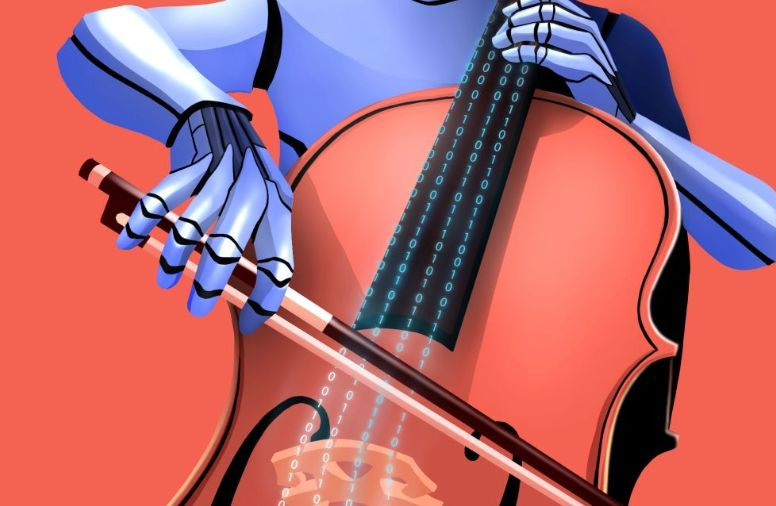AI in the Creative Industry: What’s Even Legal?
- Project Vita
- Jul 22, 2024
- 3 min read
From Siri, Alexa and Google Assistant powering consumer electronics, to ChatGPT for code writing, customer service, last-minute essays and so much more, AI has solidified itself as an essential tool in the technology sector. However, its rapid emergence in art-based industries raises pressing debates over copyright, data training and deepfakes.
AI or artificial intelligence really needs no introduction, it is the science that enables computers to replicate the human processes of reasoning and analysis through constant exposure to large amounts of data. The kind of AI used primarily in art is termed Generative AI, which defined by Amazon Web Services is “a type of AI that can create new content and ideas, including conversations, stories, images, videos, and music” (insert ChatGPT). While several industries largely benefit from its use, sectors like art and music are not happy to say the least. Summed up, generative AI threatens the foundation of copyrights; constantly needs to train itself using artwork, text and voice samples, often without the creator’s consent; devalues original art, and in most cases is just not as good as the real thing. When interviewed by Forbes, several artists commented that AI is just a ‘bland amalgamation of what has come before.’
Generative AI companies have always received backlash from creators over non-consensually using their content to train models, but the most recent and vaguely disturbing conversations are over deepfakes. Deepfakes are deceptive pieces of synthesised media made using tools like generative AI that fabricate a person’s likeness in something they did not do. Think Tom Holland and Nicki Minaj neighbour wars, Pope Francis’ Puffer jacket or Taylor Swift’s Giveaway… all deepfakes. While these instances may seem humorous, the ability to replicate a person’s likeness has been gaining legal traction, particularly for its misuse in the music and entertainment industries.
For example, actress Scarlett Johansson’s legal team has sent OpenAI two notices questioning their development of Sky, a personal assistant voice for ChatGPT that they claim sounds very similar to hers in the 2013 movie ‘Her.’ Further, Johansson claims that the CEO Sam Altman had earlier to ask to license her voice for the new AI, but she declined, and a few months later, a new voice assistant was released equipped with what sounds like her voice leaving her ‘shocked, angered and in disbelief.’ Most importantly, this instance calls into question the legal protection that artists have over the implementation of their likeness, signature stylistic features and work used by artificial intelligence companies to create and train AI tools.
Another instance, this time from the music industry, is Drake’s 2024 diss track “Taylor Made Freestyle.” The song was first released on the rapper’s social media in late April 2024, featuring generative AI-made vocals of Snoop Dogg and the late legendary rapper, Tupac Shakur. This was met with severe backlash including from the estate of Tupac Shakur. In a statement to Billboard on 24th April 2024, the estate reveals they sent a cease-and-desist letter to Drake, threatening to sue over ‘unauthorized use of Tupac’s voice and personality.’ The recording is now taken down from all social media platforms. Legally the creation of the song infringes upon Tupac’s likeness and distinctive style as an artist, violating his publicity rights. As defined by the International Trademark Association, “The right of publicity is an intellectual property right that protects against the misappropriation of a person’s name, likeness, or other indicia of personal identity—such as nickname, pseudonym, voice, signature, likeness, or photograph—for commercial benefit.” The second legal issue deals with copyright infringement, since to generate a convincing sample of his voice, the AI used must have been trained on a major part of Tupac’s discography, effectively copying his intellectual property. Since then, major label companies such as Sony Music Group and Universal Music have issued warnings and notices to hundreds of AI companies worldwide against using music owned by them in training AI models.
Overall, artists from various sectors of the entertainment, music, art and other creative industries are calling for greater legal protection of their distinctive likeness and intellectual property from generative AI. As put by Warner Music CEO, Robert Kyncl, “These characteristics are the very foundations of our individuality — they are not simply data to be taken and used by others.” Indeed while generative AI can serve as a great asset in the editing and rapid generation of creative work, it can also be misused to plagiarize from existing artists and imitate elements of their creative process. Thus, it is essential that judicial bodies worldwide establish firmer laws regarding the use of artificial intelligence generated content , lest generative AI become a Terminator-esque entity within creative industries.
By- Keerthana Rajesh




Comments